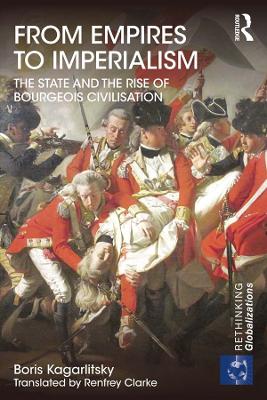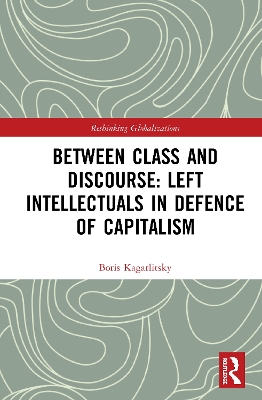Rethinking Globalizations
2 total works
Translated from the original Russian, this book analyzes the economic development of leading European empires and the United States of America. The author exposes the myths of the spontaneous emergence of the market economy and the role of government as a disincentive towards private initiative, when for centuries the state power has been carrying out a "coercing to the market" with all its strength.
This book presents a somewhat epic depiction of the development of Western hegemonic powers within the capitalist world system, from the struggles of the late Middle Ages to the rise and crisis of the American Empire. It both develops and questions some of the traditional assumptions of the world-system theory, arguing that it was very much the political form of the state that shaped capitalism as we know it and that, though the existence of a hegemonic power results from the logic of the system, hegemony is often missing in reality.
A major work of historical Marxist theory, this book is essential reading for students of international political economy, globalisation and the crisis of capitalism. This book is also ideal for students of politics, history, economics and international relations.
Between Class and Discourse: Left Intellectuals in Defence of Capitalism
by Boris Kagarlitsky
This provocative book addresses the ideological and political crisis of the Western left, comparing it with the problems facing leftist politics in Russia and other countries.
The author presents a radical critique of the current state of the Western left which puts discourse above class interest and politics of diversity above politics of social change. The trajectory away from class politics towards feminism, minority rights and the coalition of coalitions led to the destruction of the basic strategic pillars of the movement. Some elements of this broad progressive agenda became mainstream, but in fact this made the crisis of the left even deeper and contributed to the disintegration of the left's identity. The author demonstrates that a simple return to ‘the good old times’ of classical socialist politics of the industrial age is not possible, suggesting that class politics must be redefined and reinvented through the experience of new radical populism.
This book speaks directly to the way the identity politics/class politics divide has been framed within the English-speaking world. It will be of great interest to scholars and students of political science and political sociology, international relations, security studies and global studies, as well as socialist activists.

